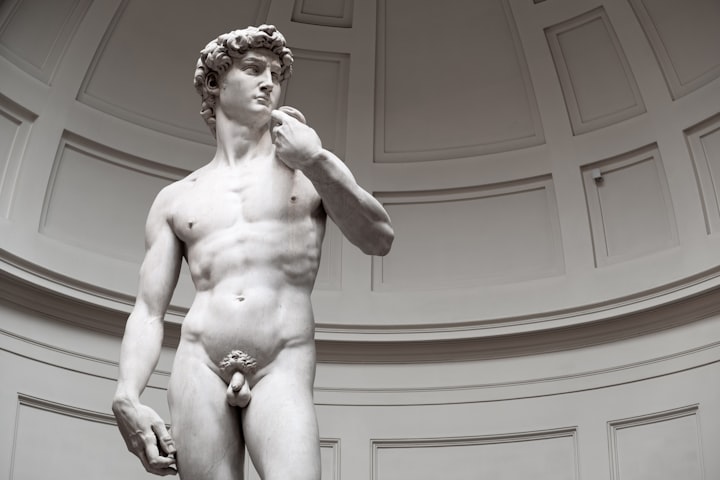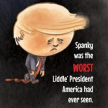Mulholland Drive's SENSE OF LIFE
an ambivalent celebration of life and death

In Mulholland Drive, the audience is presented with two different versions of one character: Betty and Diane, the heroine and the anti-heroine. The first one--who doesn't really appear until several minutes of the movie have already taken place and might only exist in a dream world ("dream place") or alternate dimension--appears innocent, young, and somewhat optimistic like a hopeful 1950s/60s teenager who wants to live an amazing life. The second version (Diane) seems bitter, older, and virtually hopeless.
In Mulholland Drive, things just happen to people, whether it's their fate or some sort of an accident or a series of accidents. Hope and love turn into despair and death.
Do the mystical blue cube and key dissolve the "dream place" or dimension only to reveal a different reality, perhaps a sadder and more tragic one? Or is that just the protagonist's waking life?
I find it hard to believe that Diane is merely dreaming of herself as Betty. I can't remember the last time I dreamt I was someone with a completely different name, with a dream body virtually identical to mine, yet who could also become like the proverbial and invisible fly on the walls of my city (or Mulholland Drive's Los Angeles) observing the seemingly random conversations, escapades, and actions of complete strangers and acquaintances.
Why does Diane dream of the elderly couple laughing in a limousine? Does her dream consciousness randomly shift from being inside her dream body to being anywhere else, like some sort of wandering astral body, "objective" camera, or "omniscient narrator" who can see anything and listen to anyone? To be honest, I don't remember having many, if any, long dreams like that. Perhaps it's more like a drug-influenced or drug-induced dream or hallucination (with copious amounts of Freudian Wunscherfüllung or wish fulfillment)?
Mulholland Drive (and David Lynch) force you to question what is real and what is reality. But what if the "dream place" and the disappointment place are related realities or worlds, both with their own potential truths and lies or illusions.
David Lynch's fictional worlds are often defined by the absurd and the surreal, but also fatalism, mysticism, determinism, and violence.
The moral of Mulholland Drive's story appears to be that if you are hopeful and earnest in your quest for success, you are actually naïve and doomed to failure and disappointment. Two contrasting elements appear to undergird Mulholland Drive: wonder at the beauty of the world and the insidious bitterness of disillusionment.
In spite of a few scenes showcasing excrement and filth (namely, dog feces on or near the grounds of Betty's new residence and an anonymous homeless person whose face and skin are covered in dirt), the exteriors and interiors depicted in Mulholland Drive are mostly pleasing to the eye. The aesthetics of Mulholland Drive are attractive and beautiful, but since Mulholland Drive's plot and narrative seem to make this abundantly clear, "Something is rotten in the" City of Angels.
In Shakespeare's tragic play Hamlet, the character Marcellus says, "Something is rotten in the state of Denmark" (Act 1, Scene 4). In Mulholland Drive, a similar message regarding Hollywood is not stated directly, yet the hypnotic and indelible effects of this film imply that it has a lot more to do with Hollywood than Hamlet ever had to with Denmark.
Nevertheless, if we were to try to universalize elements of its anti-Hollywood plot, we could see an artist or thinker who does not want to compromise with thugs who want to force him to compromise his vision and freedom. Free will in Mulholland Drive is gradually and increasingly made impossible (through threat and force) in the case of Adam Kesher (at least in the first reality/dimension or "dream place").
Yet one gets the mystical sense (from Mulholland Drive) that all roads lead to death and the afterlife. Free will for Diane leads to destruction, death, and suicide. In the second part of the film, we see her (barely) living in a society where her (ex-)friend/lover, Camilla (Rita), could realistically say--if she cared to revel in some ironic self-deprecation--"I fucked my way up to the top," (which is something a fan of David Lynch, Lana Del Rey, sang in one of her songs from her album Ultraviolence).
So who's to say what Mulholland Drive really is? Fragmented? Irrationalist? Subjectivist? Like a Rorschach test, it can be perceived as being about almost anything the individual viewer's experience, temperament, or generation perceives it as being.
An allegory of free will and ethics in late (or dying) capitalism, in which irrational violence and corruption seem more powerful and prevalent than creativity and reason?
An ambivalent celebration of life and death?
About the Creator
ANTICHRIST SUPERSTAR
https://www.theguardian.com/commentisfree/2024/mar/02/aaron-bushnell-death-washington-gaza
https://rumble.com/v4qfv2f-the-anti-woke-blowback-is-coming.html






Comments
ANTICHRIST SUPERSTAR is not accepting comments at the moment
Want to show your support? Become a pledged subscriber or send them a one-off tip.